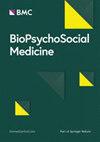Being female with vitiligo disease in traditional societies within North Africa
IF 2.4
4区 医学
Q2 PSYCHIATRY
引用次数: 0
Abstract
This study aims to assess the influence of vitiligo illness on the quality of life of female individuals residing in Ajdabiya, Libya. Through this investigation, we aim to enhance our comprehension of the potential impact of cultural norms and conventional gender roles on managing and caring for skin disorders within a North African society. Over a 20-week period, 65 female participants diagnosed with vitiligo were recruited. The participants’ quality of life was assessed using the Skindex-16 scale. This validated tool measures the impact of skin disease on several aspects of an individual’s life, including physical, emotional, and social well-being. The findings of this study indicate that the quality of life of women with vitiligo significantly differed with age, social and functional status, and economic status. However, the illness profoundly impacted patients’ lives emotionally, with clear consequences, including diminished emotional satisfaction and reduced social participation. The results of this study highlight the negative effects that vitiligo disease can have on women’s quality of life within traditional Libyan society. This investigation also indicates that cultural norms and traditional gender patterns may contribute to these effects.北非传统社会中的女性白癜风患者
本研究旨在评估白癜风疾病对居住在利比亚艾季达比耶的女性生活质量的影响。通过这项调查,我们希望进一步了解北非社会的文化规范和传统性别角色对管理和护理皮肤疾病的潜在影响。在为期 20 周的时间里,我们招募了 65 名确诊患有白癜风的女性参与者。采用 Skindex-16 量表对参与者的生活质量进行了评估。这个经过验证的工具可以测量皮肤病对个人生活多个方面的影响,包括身体、情感和社会福祉。研究结果表明,女性白癜风患者的生活质量与年龄、社会和功能状况以及经济状况有显著差异。然而,这种疾病对患者的情感生活造成了深远的影响,其后果显而易见,包括情感满意度降低和社会参与减少。这项研究的结果凸显了白癜风疾病对利比亚传统社会中女性生活质量的负面影响。这项调查还表明,文化规范和传统性别模式可能是造成这些影响的原因之一。
本文章由计算机程序翻译,如有差异,请以英文原文为准。
求助全文
约1分钟内获得全文
求助全文
来源期刊

BioPsychoSocial Medicine
Multiple-
CiteScore
3.60
自引率
0.00%
发文量
23
审稿时长
18 weeks
期刊介绍:
BioPsychoSocial Medicine is an open access, peer-reviewed online journal that encompasses all aspects of the interrelationships between the biological, psychological, social, and behavioral factors of health and illness. BioPsychoSocial Medicine is the official journal of the Japanese Society of Psychosomatic Medicine, and publishes research on psychosomatic disorders and diseases that are characterized by objective organic changes and/or functional changes that could be induced, progressed, aggravated, or exacerbated by psychological, social, and/or behavioral factors and their associated psychosomatic treatments.
 求助内容:
求助内容: 应助结果提醒方式:
应助结果提醒方式:


